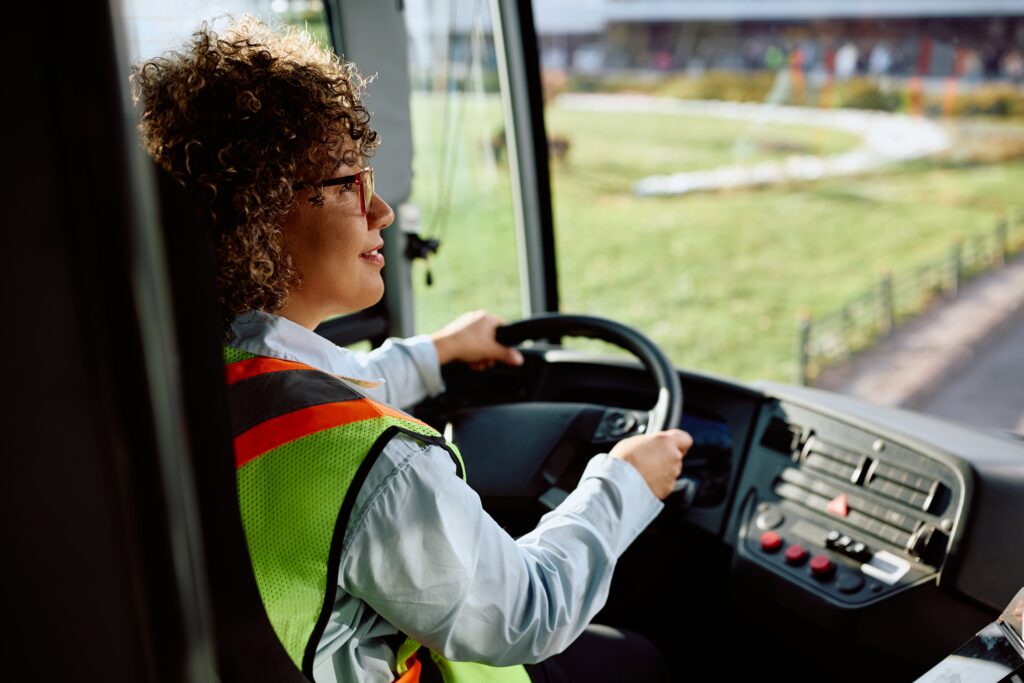Table of Contents
If you’re already an accomplished HGV driver and are looking to change things up by switching to another area of the driving profession or you’re a budding first-timer wanting to enter the world of professional driving and start from scratch, you may have come across the PCV licence.
It’s a common accreditation, but one that is required by law if you want to drive certain vehicles with a certain number of passengers.
But what exactly is a PCV licence? What type of vehicles can you drive with a PCV licence and what do you need to do to earn one?
The experts at HGV Training Network are here to shed some light on all these questions for you, so you can make the right decision about your next training programme and your driving career moving forward.
So, keep reading to learn more. Or if you’ve already been looking for a PCV training school and are ready to dive in head-first, find out more about PCV training from HGVTN here.
Did You Know – HGVTN is home to over 50 HGV training centres scattered across the country, so you’ll never be a stone’s throw away from a professional driver training facility where you can enjoy the very best PCV training!

PCV licence meaning
PCV stands for ‘Passenger Carrying Vehicle’ and, as you can guess, you will need to earn a PCV licence if you wish to drive such vehicles professionally in the United Kingdom.
These vehicles can include buses, minibuses, and coaches. Though the specific vehicle you will be able to drive and the specific number of passengers you’ll be able to accommodate will depend on what type of PCV licence you earn – more on this in a moment.

What can you drive with a PCV licence?
A PCV licence is also known as a ‘Category D’ or ‘Cat D’ licence. If we break things down even further, the Category D licence comes in two forms:
D1 – This licence allows you to operate a minibus, but it must not seat more than 16 passengers.
D – This licence allows you to drive larger passenger vehicles (a bus or coach) with over 16 passengers. Also known as a full PCV licence.
There’s also the D1+E licence, which allows you to drive minibuses, as mentioned above, as well as trailers up to 750kg.
You’ll need to undergo PCV training with an experienced, reliable training provider like HGVTN if you wish to earn either your D or D1 PCV licence. But it should be noted that you’ll also need a full standard driving licence before undertaking any training.

What is the difference between PSV and PCV licence?
During your research into the PCV licence, you may have also come across something called the PSV licence, which stands for ‘Public Service Vehicle’.
These two terms often come up together a lot, which can be very confusing when you’re trying to figure out the exact licence you need to drive the vehicles you want to drive.
But, in this case, there’s nothing to worry about. The PSV licence is simply the old terminology that was replaced with the PCV licence back in 1992.
You might still hear the term thrown around by drivers in the trade who were still driving back in the early nineties, or even sooner, but think nothing of it. The only licence you need to focus on earning is the PCV licence.

What do I need to get a PCV licence?
As mentioned above, you’ll first need to have held your standard car licence for at least 12 months before attempting to earn a PCV licence. You’ll also need to be at least eighteen years of age.
But beyond this, you’re pretty much ready to begin training and studying to earn your PCV licence, which you can do with HGV Training Network.
It’s not too dissimilar to the training and practice you experience when learning to drive a car for the first time. As part of your preparation for the test, you’ll need to undergo practical training which involves driving a real-life passenger vehicle – you’ll need to show you can drive this vehicle competently before attempting your practical driving test.
Then, there’s also a 100-question PCV theory test you’ll need to pass. But don’t worry, when learning with an experienced training provider like HGVTN, you’ll be given all the tools you need to pass with flying colours.
If you manage to pass both your practical PCV driving test and theory exams, along with a legally required PCV medical examination and CPC (certificate of professional competence) exams, you’ll be awarded your PCV licence and will be ready to take large passenger-carrying vehicles out on the open road!e throughout 5-years and you’ll be well on your way to maintaining your professional licence and driver CPC card.

Explore HGV training and PCV driver training with HGV Training Network
Now that you’re more aware of what exactly the PCV licence is and how you can earn one, HGV Training Network is here to help you take the next step.
When training with HGVTN, you’ll benefit from learning under real-life professional drivers who have been exactly where you are and are ready to share their wealth of knowledge with you to help you pass your theory and practical test with ease.
To find out more about PCV training at HGVTN, click here or speak to a member of the HGVTN team for more information about our courses and our attractive financing options.








